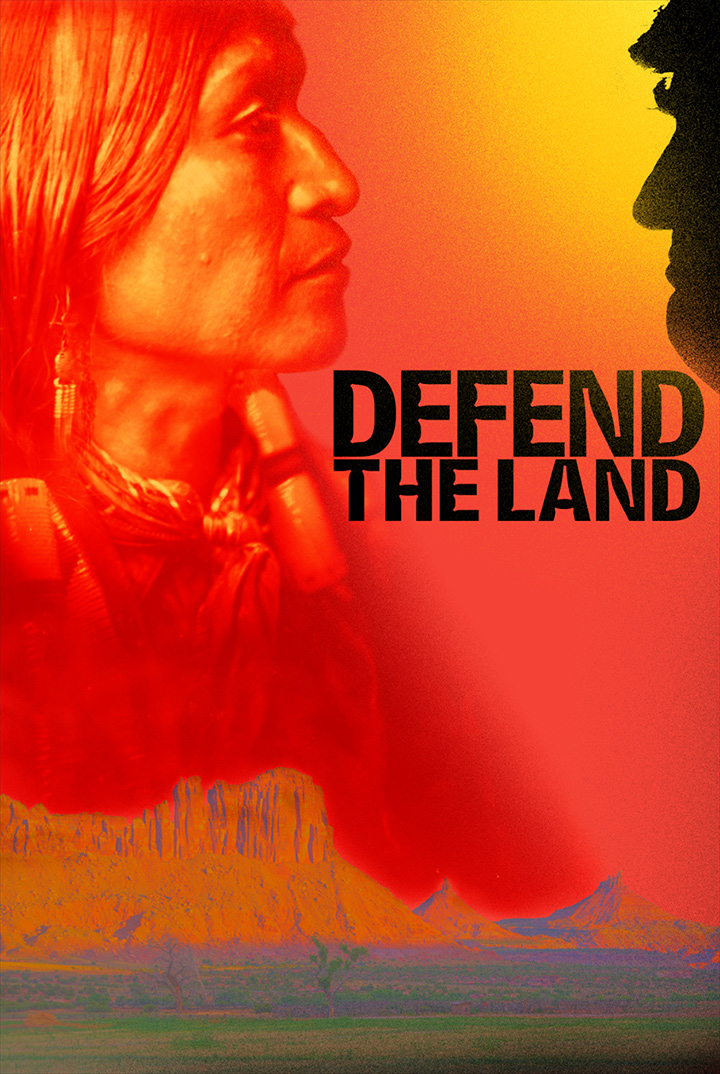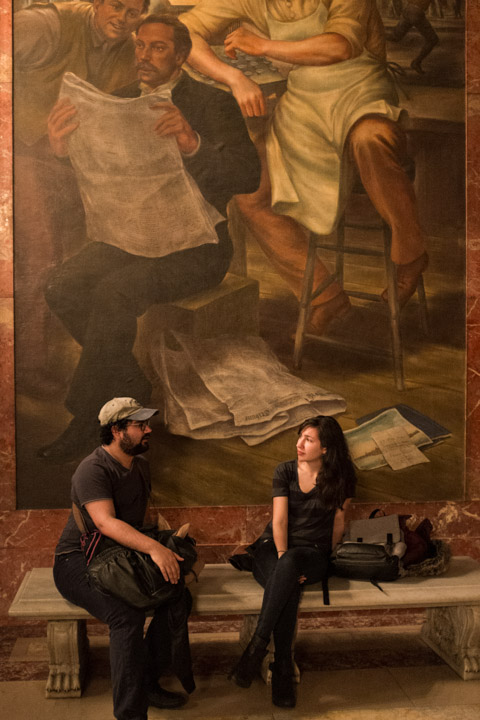- The Absence of Strong Women #
-

From Charlotte Gordon’s introduction to Mary Shelley’s Frankenstein: The 1818 Text:
…Ultimately, the absence of strong women holds the key to Frankenstein’s main themes. When women are not allowed to have a voice, or to play important roles in society, Mary implies, loss ensues. Unchecked male ambition will lead to destruction, injustice, and devastation.
Frankenstein is the story of one man’s obsession with the creation of life, and his subsequent abandonment of his creation. It is a study of guilt and innocence, creativity and destruction. But it is also a cautionary tale. By fearing the stranger, by abusing the vulnerable and the outcast, society creates its own monsters.
I encourage you to buy the new Penguin Classics edition with a beautiful cover illustration by Marci Washington, but you can also read the full text online at Archive.org.
Simon Griffee
Department of graphic design, art direction, and photography.
March 2018
Defend The Land

Poster for Bears Ears dedicated to the Public Domain.
Download a high-resolution version for printing at Archive.org.
- The Door Problem #
-
Liz England explains work roles in a game company.
- TimBL to Zuck #
-
Tim Berners-Lee’s message to Mark Zuckerberg:
I would say to him: You can fix it. It won’t be easy but if companies work with governments, activists, academics and web users we can make sure platforms serve humanity.
Tips for Limiting Social Media Information

Some advice for using social media while limiting access to your information:
- Use a separate web browser exclusively to access the social media site (I recommend Brave for desktops and Firefox Focus for mobile) so it cannot track other sites you visit via cookies.
- Use only a web browser to access social media websites, and don’t use any apps linked to the social media sites, including and especially communication apps like Facebook Messenger. WhatsApp is somewhat better because it is encrypted with the same tech used for Signal (at least according to Moxie Marlinspike, who I trust — you have to choose who you trust). By the way, both WhatsApp and Instagram are owned by Facebook and user data is almost certainly cross-referenced and shared between them.
- Have an email address and write emails, for fuck’s sake. Preferably rent your own domain name (around 14 Euros per year with a good host like Gandi.net). Don’t communicate exclusively on Facebook, Sina Weibo or other social platforms.
- Ads loaded from third-parties on websites you visit can also track you. For a better web browsing experience, I recommend using uBlock Origin — an open source ad blocker that is confusingly completely unrelated to the website ublock.org. You can install it in Firefox here and in Chrome here. A good ad blocker will not only save your eyes but also your time and battery power, and you can disable it for sites with responsible advertising that you wish to support.
It is difficult to completely limit information a social media service has about you if you use it, but the above helps, and there are many people working to make things better.
Here are further tips for creating your online identity, should you want one. (If you don’t, the social media sites may just decide for you based on your friends’ and acquaintances’ public opinions about you, especially if you live in China.)
We have a ways to go yet, in this World of Ends.
Goodbye, Stephen Hawking
For millions of years mankind lived just like the animals. Then something happened which unleashed the power of our imagination: we learned to talk.
It doesn’t have to be like this. All we need to do is make sure we keep talking.
Collision with an asteroid is one of the least of the dangers we now face. The last collision was 70 million years ago. Nuclear war, climate change, and pollution, are now much greater threats. Of course it would be impossible to move the population of the Earth to a new planet, but if we can establish independent self-sustaining colonies in space, it would ensure the survival of the human race, in the event of a disaster on Earth. Leaving Earth will also give us a new perspective, and cause us to look outwards rather than inwards. It would also unite us to face a common challenge.



